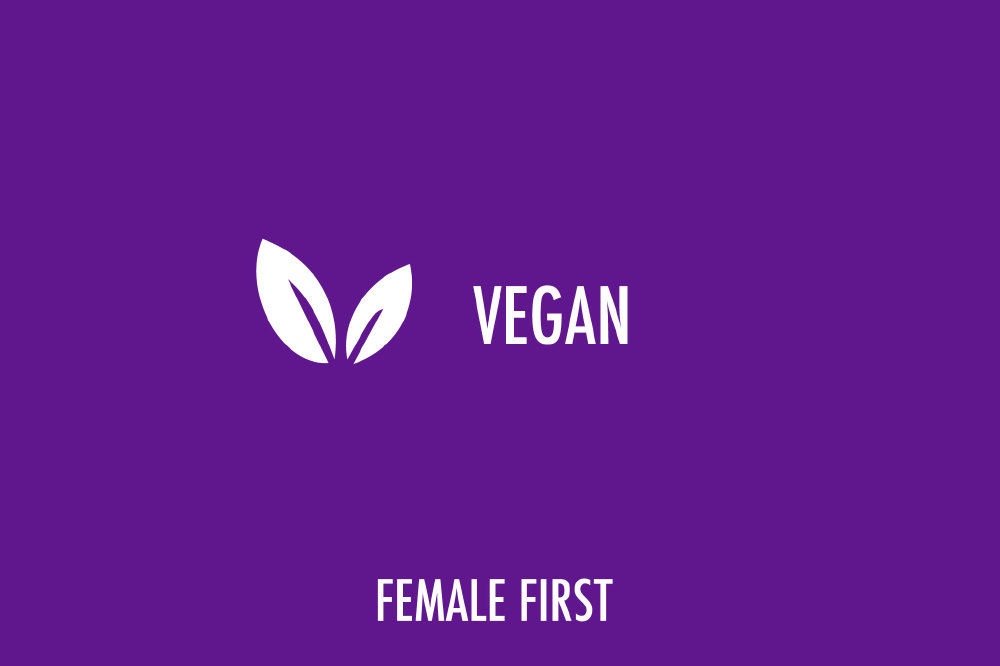According to Hippocrates famous quotation “let food be thy medicine and medicine be thy food’, what we eat can make a difference to our long term health and wellbeing. Many large scale epidemiological studies such as the Nurses Health Study and EPIC study examined the long term effects of nutrition and lifestyle on health and disease and development and have examined this hypothesis. These studies have found that a Mediterranean type of diet with a higher vegetable, oily fish and vitamin D intake and lower red meat and processed meat intake is linked to reduced risk of certain cancers, cardiovascular disease, cognitive impairment and eye disease.

Vegan on Female First
So what foods should we eat each day to help reduce the risk of disease developing and nurturing our long term health? Based on these epidemiological studies, I advise people to have a diet rich in a large variety of fruits and vegetables, oily fish and other mono-unsaturated fats including extra virgin olive oil and avocado and foods that promote gut health including whole grains.
I’m particularly passionate about cancer prevention and as it is Breast Cancer Awareness Month, I’m sharing my favourite 10 plant based foods and sharing how they prevent cancer.
- Garlic and onions – these alliums are harmful to carcinogens (cancer causing chemicals) so eat a little every day. They contain active compounds such as diallyl sulphide, quercetin and ajoene. Quercetin is a powerful antioxidant which inhibits the growth of malignant cells and causes cancer cells to implodeAjoene and allicin may perform as chemotherapy against cancerous cells in general.
- Sweet potatoes, carrots, pumpkins, kale, spinach, mangoes, apricots , cantaloupe melons- these fruits and vegetables all have high levels of beta-carotene which may prevent cancer and destroy human tumour cells by stimulating the immune system to produce chemicals which kill tumour cells. Betacarotene is stored in lung, liver, kidney and fat tissues which can also convert it into retinoic acid as required. This means that when you eat foods high in beta-carotene, you stock your tissues with your own supply of anti-tumour medicine as your cells need it.
- Tomatoes- they contain lycopene which is a great antioxidant which is also present in watermelon and some in apricots. Lycopene is twice as powerful as beta-carotene at quenching oxygen free radicals. Oxygen free radicals can cause the DNA in cells to mutate which can cause cancer.
- Watercress, kale, broccoli, cabbage and sprouts – these are full of antioxidants including beta-carotene, folic acid and lutein. Lutein and other carotenoids are present in dark green vegetables and these antioxidants are not lost during cooking or freezing. These vegetables also have isothiocyanates which stimulate illness-bursting enzymes made in the liver and block colonic carcinogens.
- Soya beans –they are a rich source of protease inhibitors which in animals totally block or hinder the development of colon, oral, lung, liver, pancreatic and oesophageal cancers. They also contain phytosterols which stop colon cancer in animals by inhibiting cell division and proliferation. Soya beans also contain saponins which may stimulate the immune system, kill some tumour cells, slow the growth of cervical and skin cancer cells and maybe even reverse the proliferation of cancerous colon cells. Drinking miso soup is an alternative to eating soya beans.
- Shiitake mushrooms – contains lenitan which is a biological response modifier that boosts immune activities against cancer.
- Raspberries, strawberries and walnuts – these are all rich in ellagic acid which regulates the enzyme that encourages cancer cells to self-destruct.
- Apples, bananas, pears, prunes, apricots, carrots, dried beans – all have pectin which is a soluble fibre which inhibits colon cancer.
- Peppers and strawberries – they both contain p-coumaric acid which removes nitrosamine carcinogens in the stomach. Removing carcinogens helps to prevent DNA from mutating.
- Aubergines, blueberries, black grapes, plums, prunes – rich in anthocyanins which destroy disease-causing free-radicals that might mutate DNA and cause cancer.
Written by Nutritional Scientist and Chef Toral Shah, www.TheUrbanKitchen.co.uk
Tagged in Breast Cancer fruit vegetables

